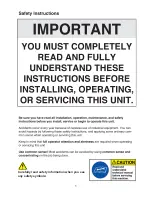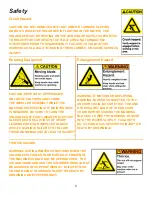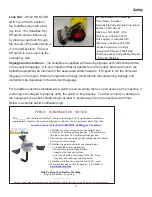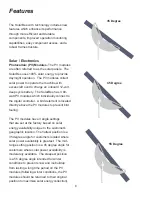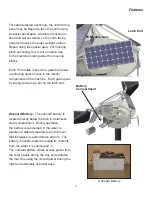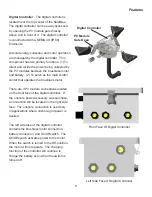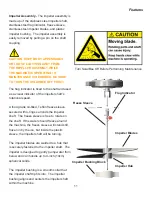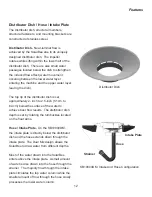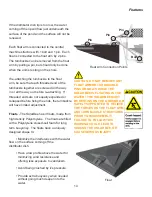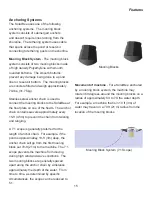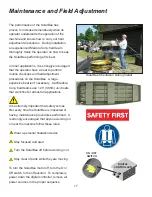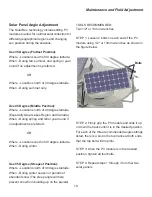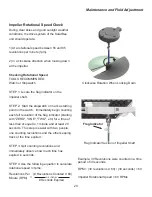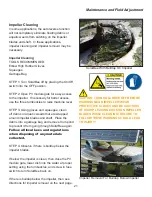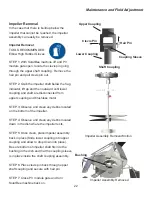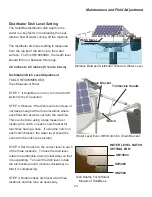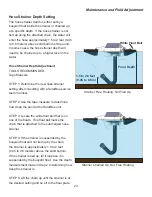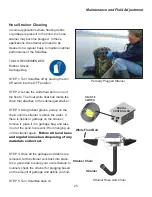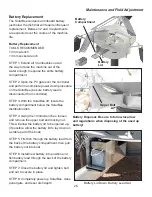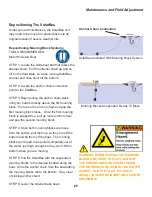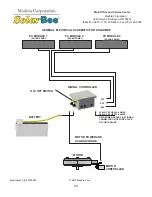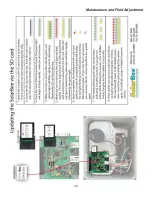
15
Features
Mooring Blocks
Mooring Block System (7:1 Scope)
Anchoring Systems
The SolarBee uses one of the following
anchoring systems. The mooring block
system consists of submerged anchors
and doesn't require lines running from the
shoreline. The tethering system uses cable
that spans across the pond or reservoir
connecting to tethering posts on the shorline.
Mooring Block System
- The mooring block
system consists of two mooring blocks made
of high density Polyethylene with smooth,
rounded bottoms. The smooth bottoms
prevent any damage being done to a pond
liner or reservoir bottom. The mooring blocks
are concrete filled and weigh approximately
70-lbs. (31.75 kg).
Stainless steel anchor chain is used to
connect the mooring blocks to the SolarBee at
the float plate on one of the floats. The anchor
chain contains swivels approximately every
15-ft (4.5m) to prevent the chain from twisting
and tangling.
A 7:1 scope is generally preferred for the
length of anchor chain. For example, if the
pond is approximatley 10-ft (3m) deep, the
anchor chain will go from the first mooring
block out 70-ft (21m) to the machine. The 7:1
scope prevents the machine from moving
during high wind and wave conditions. The
two mooring blocks are generally spaced
apart along the anchor chain by a distance
approximately the depth of the water. From
time to time, as determined by specific
circumstances, the scope can be reduced to
5:1.
Movement of machine
- For a SolarBee anchored
by a mooring block system, the machine may
rotate 360 degrees around the mooring blocks on a
radius of approximately 5X to 7X the water depth.
For example, a machine that is in 10 ft (3m) of
water may travel on a 70 ft (21 m) radius from the
location of the mooring blocks

